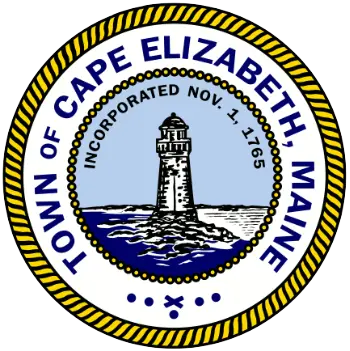Published on March 08, 2024

On Thursday, February 29, 2024, Town Manager Matthew Sturgis and Tax Assessor Clinton Swett participated in a podcast with Kristina Egan of Greater Portland Council of Governments (GPCOG) to discuss Cape Elizabeth's town-wide revaluation. Egan asked questions regarding the town's revaluation, the first since 2011, and why it was necessary. Sturgis responded by saying it isn't just to update the numbers, but to make sure people are being treated equitably. Over 13 years, "There are areas that may have appreciated at a greater rate than others and other areas that might not have appreciated as much. The difference is, those that appreciated at a greater rate are paying less than their fair share, whereas those who have not appreciated as rapidly are paying more than their fair share. In many ways, it's an equalization program as well."
Swett added that the state requires town's to do an inventory of the housing every ten years and inspect the properties in your town. "The last time they went out and knocked on doors was 2003 and lot of things have changed since then," Swett said. Currently, Swett said that all the field inspections are complete, data has been received and corrections have been made, and "We are ready to role out information to the people of Cape Elizabeth to inform them of their new values in preparation of the tax bills that will go out in the fall." Sturgis confirmed that this information has been posted to the website and available to search by name and address.
Egan asked if there is a sense of how much the valuations have changed in Cape Elizabeth. Swett said that in some cases the values have doubled or tripled. However, Swett emphasized that even if one's valuation doubles or triples, it does not mean that their tax bill will double or triple. Swett explained that in the process of developing the fiscal budget for both municipal and school budgets, a MIL rate (tax rate) is determined by taking the total budget and dividing it by the town's valuation - which adjusts per a revaluation process. "So, when that bottom number gets larger, as with any fraction, your MIL rate/tax rate is going to get smaller," he said. Additionally, Sturgis emphasized that the increased valuation does not double revenue, "The town does not have a bunch of new revenue that is coming in, it's really revenue neutral." Egan surmised that it becomes important and helpful to residents who are anxious about their new valuations, "To understand that a revaluation is not directly related to the amount of taxes that they are going to pay, it is a component with the tax rate."
The entire interview, with additional questions and answers is available on Spotify, YouTube, and CETV.
